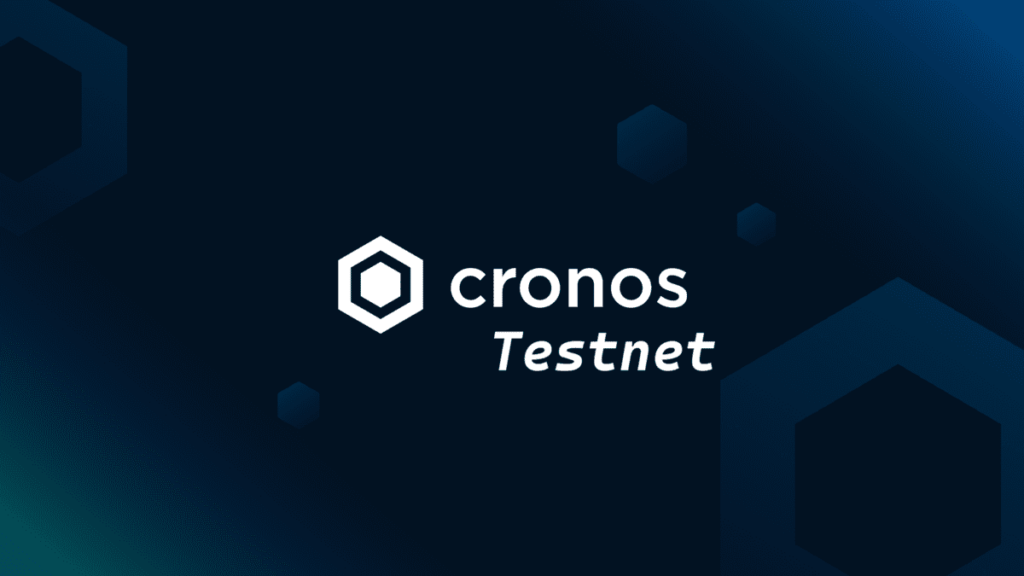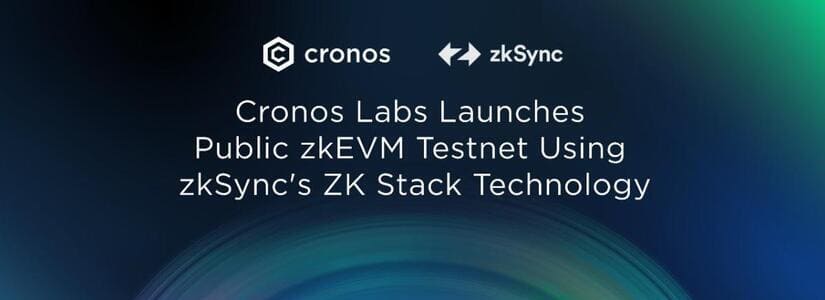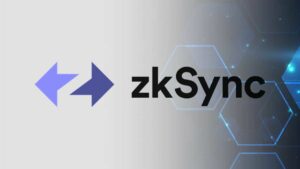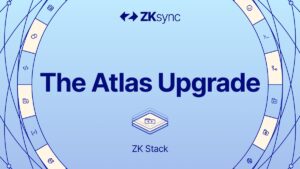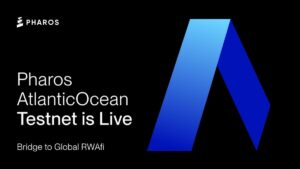Cronos Labs, in collaboration with ZkSync, announced the launch of their public zkEVM testnet, marking a significant achievement in scalability and mass adoption within the Web3 and DeFi space.
This new technology, developed in partnership with ZkSync, leverages innovative zero-knowledge (ZK) technology to create a layer 2 network, named zkEVM, on the Ethereum Sepolia. The collaboration between Cronos Labs, ZkSync, and other key participants such as Matter Labs, Crypto.com, VVS Finance, Fulcrom Finance, and Veno Finance underscores the importance of building alliances and collaborating on the development of more innovative projects for the blockchain ecosystem.
🔥Today we mark a significant #CROFam milestone with the launch of Cronos zkEVM Chain Testnet
🤝Developed in partnership with @the_matter_labs, @cryptocom, @VVS_finance, @FulcromFinance, @VenoFinance this hyperchain paves the way for scalability
👉🏻 https://t.co/iC9c2T98fD pic.twitter.com/WAzfkEZQu2
— Cronos Labs (@cronos_labs) December 14, 2023
The zkEVM testnet operates as a hyperchain, harnessing the ZK Stack modular framework and securing the network from a final settlement and data availability standpoint through the Ethereum Sepolia testnet. This scalable infrastructure is a strategic step to pave the way for mass adoption, enabling Cronos Labs and its partners to experiment with zero-knowledge layer 2 technology.
Ken Timsit, CEO of Cronos Labs, emphasized the significance of this initiative, stating:
“The zkEVM testnet represents an opportunity for Cronos Labs and our partners, including VVS, Fulcrom, and Veno, to experiment with zero-knowledge layer 2 technology and prepare for the next phase of growth starting in 2024. We warmly invite other Cronos applications to join the testnet.”
An Efficient, Scalable and Interoperable Testnet
This testnet employs a zero-knowledge proof system based on Boojum STARK, executable on graphics processing units (GPUs) with low RAM requirements. Furthermore, the network uses TCRO, a testnet version of Cronos’ native cryptocurrency CRO, to pay transaction fees. Notably, it can accept fee payments in various cryptocurrencies due to the native account abstraction implemented at the protocol level.
Through this project, Cronos Labs embarks on exploring solutions that not only enhance the efficiency and scalability of their network but also facilitate interoperability with Ethereum. The future vision involves the adoption of a shared native bridge with Ethereum in 2024, enabling users to send tokens and messages between networks while benefiting from the inherent security of Ethereum.


